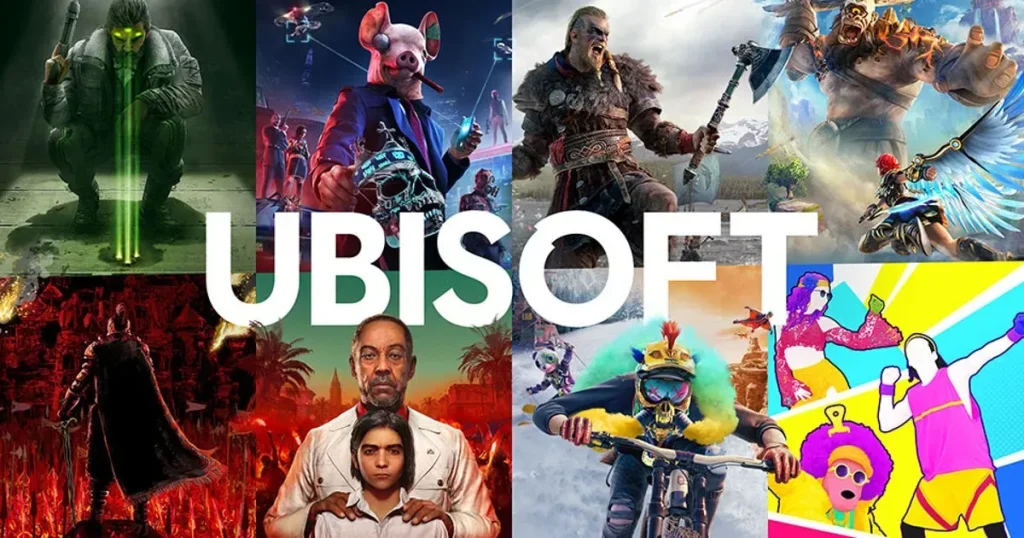The recent Ubisoft data protection complaint has sparked intense scrutiny over the gaming giant’s data collection practices, which are now under fire from the privacy non-profit organization NOYB. Players have raised concerns that Ubisoft’s requirement for “always online” connectivity not only infringes upon the convenience of offline gaming but also poses significant risks to user privacy under data protection laws like the GDPR. The organization’s allegations state that Ubisoft has no legal basis for the extensive data it collects, drawing parallels to digital trespassing. Furthermore, it has been reported that the game’s setup forces an unwelcome relationship between players and external data servers, raising alarms about how personal information is utilized. The potential implications of this complaint could reshape the landscape for digital rights in the gaming industry, especially regarding user consent and transparency.
Recently, concerns surrounding Ubisoft’s handling of player data have come to a head, resulting in a formal complaint by the non-governmental organization NOYB, which champions digital rights. This situation highlights the broader implications of privacy standards in the gaming world, particularly for titles operating under the premise of mandatory online connections. The allegations have surfaced amid growing debates about compliance with privacy regulations such as the GDPR and the necessity of user consent when it comes to data harvesting in the realm of video games. With aspects of digital trespassing being raised, the complaint exposes potential vulnerabilities in conventional gaming practices, urging a re-evaluation of how companies engage with personal information. As this issue unfolds, it may set significant precedents for how data protection laws are interpreted and enforced in the entertainment technology sector.
Understanding the NOYB Complaint Against Ubisoft
The NOYB complaint filed against Ubisoft has sparked significant discussion regarding data protection practices within the gaming industry. This complaint focuses on the lack of a valid legal basis for Ubisoft’s extensive data collection. With claims that data packets containing personal information are sent without user consent, the case highlights serious concerns about the adherence to the GDPR, which mandates strict guidelines for data handling and privacy. As more players become aware of these practices, the implications for businesses operating under data protection laws are increasingly coming to the forefront.
Additionally, the complaint points out the problematic nature of ‘always online’ games like Far Cry Primal, which require users to be logged into an Ubisoft account to access even single-player modes. This expectation not only raises questions about player autonomy but also about the ethical use of data collection under the framework of the GDPR. As organizations like NOYB advocate for transparency, they are positioning themselves at the heart of a movement that seeks to redefine how digital services operate within legal boundaries to protect users’ rights.
The Legality of ‘Always Online’ Gaming Models
Ubisoft’s policy of requiring always-on internet connections for games has received backlash due to potential infractions against data protection laws. Under GDPR guidelines, users must have clarity on what data is being collected and how it is used, which directly applies to Ubisoft’s data collection practices. When players find their personal data being captured without explicit consent, especially while engaging with content like single-player games, they have valid reasons for concern. For many, the idea of having their data monitored while simply trying to enjoy a game feels intrusive and unfair.
Moreover, the implications of such policies extend beyond just Ubisoft. The gaming industry overall has to consider how data is managed in the context of GDPR compliance. If a gaming company can collect personal information under the guise of ownership validation, it raises further issues surrounding digital trespassing and the ethical responsibilities of data handling. As the dialogue around these topics continues to evolve, the industry may face increased scrutiny and pressure to adjust its standards for data privacy and player respect.
Impacts of the Complaint on Ubisoft and the Gaming Industry
The NOYB complaint against Ubisoft could have far-reaching consequences for the gaming industry. If upheld, it may set a precedent that forces developers to rethink their data collection practices and consider the implications of ‘always online’ requirements for games. As players become more aware of these issues, there may be a push for changes that benefit user privacy rights and ensure compliance with existing data protection laws, including the GDPR. This could lead to a significant shift in how online games operate, ultimately prioritizing player rights over corporate data needs.
Additionally, Ubisoft’s response and potential legal repercussions could influence the industry at large to adopt more transparent practices. With millions of gamers impacted by similar data collection tactics, the likelihood of more lawsuits surfacing is high. As the public becomes increasingly vigilant about their data privacy, companies will need to adjust accordingly. The outcome of this complaint could empower players and shape a new standard for data protection that echo the sentiments expressed by NOYB — that digital trespassing should carry the same gravity as physical trespassing.
The Role of Data Protection Laws in Gaming
Data protection laws, particularly the GDPR, play a crucial role in safeguarding user information in the gaming sector. These regulations ensure that players are not subjected to unconsented data collection and that their digital interactions are as private as possible. Given the evolving nature of technology and gaming practices, it’s essential for companies like Ubisoft to stay compliant with these laws. By doing so, they protect their users from digital uncertainties while also shielding themselves from potential fines and legal disputes.
As the gaming landscape continues to adapt to new technological advancements, the integration of data protection can enhance user trust. This shift towards a GDPR-compliant approach provides an opportunity for developers to foster deeper relationships with their players based on transparency and respect for personal privacy. By aligning corporate practices with legal expectations, developers not only comply with rigorous standards but also enhance their brand reputation among privacy-conscious consumers, thereby gaining competitive advantage.
Implications of Digital Trespassing in Gaming
‘Digital trespassing’ refers to unauthorized access to a user’s data or violating their privacy while engaging with online services, and it is a concept that NOYB has emphasized in its complaint against Ubisoft. This term highlights the ethical issues surrounding user data collection practices, particularly in the gaming industry. When players feel that their information is being harvested without clear consent, it can lead to a significant breach of trust. The sentiment that, if illegal in physical spaces, should also apply to digital interactions underscores the need for stringent adherence to ethical data practices.
The ramifications of digital trespassing can have severe consequences for gaming companies. A loss of trust can result in decreased player engagement and, ultimately, diminished sales. As consumers become more informed about their rights, companies need to adopt practices that respect and protect user data. The NOYB complaint serves as a crucial reminder of the importance of safeguarding personal information, as the visibility of such cases can lead to a broader movement towards reforming industry standards and legislations surrounding data privacy.
Player Rights and Data Ownership in the Digital Age
In today’s digital landscape, understanding player rights regarding data ownership is essential. The NOYB complaint against Ubisoft raises serious questions about the extent to which gaming companies can claim ownership over user data. Many players are unaware of the data being collected during gameplay, particularly in models requiring online access even for single-player experiences. This lack of transparency puts players at a disadvantage, highlighting the need for clear regulations that define data ownership and rights within the gaming realm.
The recognition of player rights should prompt gaming companies to develop clearer policies and practices concerning data usage. Ensuring that players have control over their data not only builds trust but also aligns with GDPR regulations that prioritize individual privacy. As awareness grows, it’s crucial for players to advocate for their rights, demanding better accountability from developers. Ultimately, a shift towards recognizing data ownership ensures a healthier relationship between gamers and the companies that create their digital experiences.
Ubisoft’s Accountability and the Future of GDPR Compliance
Ubisoft’s accountability in this complaint may serve as a critical turning point for how gaming companies prioritize GDPR compliance. As data protection laws continue to tighten in response to growing public concern over privacy, developers will likely face increased scrutiny regarding their data handling processes. The outcome of this case could compel Ubisoft to implement more robust practices that respect user data rights, thereby reshaping the industry’s approach toward player data protection.
Moreover, Ubisoft’s response and the overall outcome of the NOYB complaint could influence future legislative efforts around digital privacy and data security. If players see tangible changes resulting from this case, it may encourage them to pursue legal recourse against other companies that engage in questionable data practices. The future of GDPR compliance within the gaming industry largely depends on the collective response to cases like this one, reflecting a new standard for how player data will be respected moving forward.
Shifting Paradigms: From Corporate Interests to Player Privacy
As digital privacy concerns mount, the gaming industry is experiencing a paradigm shift from prioritizing corporate interests to emphasizing player privacy. The NOYB complaint illustrates how organizations are pushing back against data collection policies that infringe upon individual rights. The conversations surrounding these topics are gaining momentum, suggesting a transformative period in which players demand more control over their personal information as a prerequisite for engaging with games.
This shift marks a significant turning point in the relationship between gaming companies and their user base. As organizations like NOYB advocate for the rights of players, it may pave the way for reform and stricter regulations that ensure data protection is not merely an afterthought but a fundamental element of game design and marketing. By centering player privacy, the industry can foster a more ethical and responsible gaming culture that prioritizes consumer rights and safety.
Navigating the Riptides of Digital Privacy Legislation
Navigating the complexities of digital privacy legislation, such as the GDPR, is becoming increasingly important for gaming companies like Ubisoft. The recent NOYB complaint serves as a reminder that compliance is not optional; it is an essential component of transparent and ethical business operations. As regulations evolve, gaming companies must remain vigilant in understanding and implementing these laws to avoid potential lawsuits and penalties.
Moreover, the shifting legislative landscape demands that developers adopt proactive measures in protecting user data. By integrating compliant practices into their operations, gaming companies not only protect themselves from legal challenges but also create a more trustworthy environment for players. This proactive approach to navigating privacy legislation fosters positive relationships with consumers and sets a standard for ethical behavior in the gaming industry.
Frequently Asked Questions
What is the Ubisoft data protection complaint regarding GDPR?
The Ubisoft data protection complaint involves allegations made by the NGO NOYB claiming that Ubisoft’s data collection practices lack a valid legal basis under GDPR. The complaint specifically addresses the collection of personal data during gameplay, highlighting concerns about privacy and digital rights, as well as the requirement for ‘always online’ connections.
How does the NOYB complaint against Ubisoft relate to data protection laws?
The NOYB complaint against Ubisoft is directly tied to data protection laws, particularly the General Data Protection Regulation (GDPR), which mandates that companies must have a legitimate reason to collect personal data. NOYB argues that Ubisoft’s practices violate this principle by not providing clear purposes for data collection and forcing players to connect online for single-player games.
What implications does the Ubisoft complaint have on ‘always online games’?
The implications of the Ubisoft complaint on ‘always online games’ include potential legal challenges to the practices of requiring continuous internet connections for games that do not inherently need online features. NOYB argues that this practice can constitute digital trespassing, as it infringes on players’ rights to privacy and control over their data.
What concerns does the player have in the Ubisoft data protection complaint?
The player involved in the Ubisoft data protection complaint expressed concerns over the extensive data collection during gameplay without valid consent. They raised alarms about 150 unique DNS packets being sent and questioned the necessity and legality of sharing personal data with external servers like Google and Amazon while playing a single-player game.
What can be expected from the outcome of the Ubisoft GDPR complaint?
The outcome of the Ubisoft GDPR complaint may lead to significant changes in how Ubisoft collects and handles user data, potentially resulting in fines or stricter regulations. If the complaint is upheld, it could set a precedent for other ‘always online’ games, emphasizing the need for compliance with data protection laws and respect for user privacy.
Why does NOYB consider Ubisoft’s data practices as digital trespassing?
NOYB considers Ubisoft’s data practices as digital trespassing because they argue that unauthorized data collection without explicit consent is akin to entering someone’s private space without permission. The organization asserts that if physical trespassing is illegal, so should be analogous behaviors in the digital realm, which includes intrusive data collection.
What was Ubisoft’s response to the data protection complaint?
Ubisoft’s response to the data protection complaint included a defense stating that the data sent during gameplay serves legitimate purposes, such as ownership verification of games. However, they have not thoroughly addressed the concerns regarding the legality and transparency of their data collection methods.
| Key Points | Details |
|---|---|
| Complaint Filed | NOYB filed a complaint against Ubisoft for illegal data collection practices. |
| Key Allegation | The complaint claims there is ‘no valid legal basis’ for data collection from players. |
| Offline Play Issue | Players cannot enjoy single-player games like Far Cry Primal without an internet connection or Ubisoft account. |
| Data Collection Analysis | The player identified 150 unique DNS packets and numerous external server requests during gameplay. |
| Concerns Over Data Use | Ubisoft’s vague explanation of data collection did not clarify its purpose or third-party data sharing. |
| Legal Context | The lawsuit compares Ubisoft’s practices to digital trespassing and argues for compliance with GDPR. |
Summary
The Ubisoft data protection complaint filed by NOYB highlights serious concerns regarding the legality of data practices exhibited by the gaming giant. The allegations point to an unacceptable invasion of player privacy, particularly through the mandatory online connections for games that should be playable offline. The complaint emphasizes that if certain behaviors are deemed illegal in the physical world, they must also be considered illegal in the digital realm. Given the potential impact on millions of users, this case underscores the urgent need for stronger adherence to data protection laws like GDPR.



